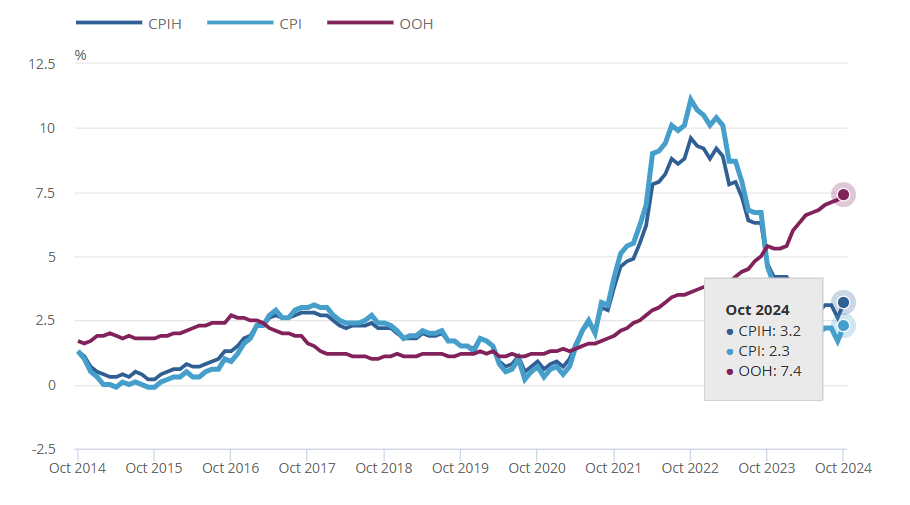In October 2024, the annual inflation rate in the euro area increased to 2.0%, up from 1.7% in September but lower than the 2.9% recorded in October 2023, according to Eurostat, the statistical office of the European Union.
In October 2024, the annual inflation rate in the euro area increased to 2.0%, up from 1.7% in September but lower than the 2.9% recorded in October 2023, according to Eurostat, the statistical office of the European Union. Inflation in the European Union also rose, reaching 2.3% in October, compared to 2.1% in September. However, this marked a decline from the 3.6% rate reported in October 2023.
The lowest inflation rates were observed in Slovenia (0.0%), and both Lithuania and Ireland (0.1%). Conversely, Romania recorded the highest rate at 5.0%, followed by Belgium and Estonia, both at 4.5%. Compared to September 2024, inflation decreased in two Member States, remained stable in six, and increased in nineteen.
In October 2024, services were the largest contributor to the euro area’s annual inflation, accounting for +1.77 percentage points. Food, alcohol, and tobacco followed, contributing +0.56 percentage points. Non-energy industrial goods added +0.13 percentage points, while energy prices continued to exert a downward pressure, subtracting -0.45 percentage points from the overall inflation rate.

Source: Eurostat
President Trump imposed new tariffs, including a 10% base rate and higher levies on key trading partners.
Detail US Job Openings Hold Steady at 7.6 Million in February
US Job Openings Hold Steady at 7.6 Million in FebruaryHiring, separations, and quits remain stable as the labor market shows resilience.
Detail US Manufacturing Growth Stalls in March Amid Tariff Concerns
US Manufacturing Growth Stalls in March Amid Tariff ConcernsOutput slips, hiring stagnates, and cost pressures mount as policy uncertainty weighs on factories.
DetailThen Join Our Telegram Channel and Subscribe Our Trading Signals Newsletter for Free!
Join Us On Telegram!